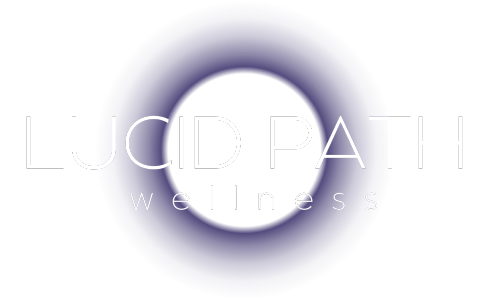Large Brain, Mixed Bag: Managing Terror
Being human is a tough gig.
I’ve logged some hours thinking about why this is and have concluded that the reason we struggle is largely due to our capacity for abstract thought. Thanks to our frontal lobe we can imagine and problem solve in ways that range from awe-inspiring to disastrous; we can contemplate who we are and understand concepts like the past and the future. It’s easy to imagine how one might develop symptoms of depression and/or anxiety in response to this ability as we wrestle with trying to understand why terrible things have happened and then fearing that they could happen again.
And then there’s the big one . . . that moment in your development when you discover that the only thing that’s certain is that one day you’ll die. (Again, I earn my nickname “little ray of sunshine”)
Mortality is a lot to digest. Thank you, frontal lobe.
Each one of us must find a way to come to terms with the certainty of our death. One way we might do this is to look to those around us to learn how they cope, but most of us are born into a worldview that provides built-in answers to help us cope with the knowledge of death.
When I was an undergrad at the University of Arizona I took a Social Psychology class with a professor named Jeff Greenberg. He and two colleagues developed the Terror Management Theory that proposes that humans develop a “basic psychological conflict that results from having a desire to live, but realizing that death is inevitable.” Out of this conflict arises terror. To manage the terror, we might lean on cultural values that provide a kind of symbolic immortality that allows us to be part of something greater (i.e., patriotism) and/or symbolic belief systems (i.e., religion) to give life meaning and value.
According to this theory, each culture creates its own identity and devises answers to alleviate the inevitability and mystery of death. What do you imagine would happen if Culture A bumped up against Culture B? (answer: human history). Encountering another worldview can be very threatening since there’s only one way to make sense of this crazy existence and “ours” is the right way – giving birth to an “us vs. them” mentality.
Trump capitalized on terror to get himself a seat at the grown ups’ table. As a result, two major subcultures have emerged in a big way in the ol’ U.S. of A. (Rhyme unintended, but spectacularly bad and therefore worth keeping). Those subcultures include: The oh-shit!-we’re-all-gonna-die-so-we-gotta-stick-to-our-own-kind Trump supporters and the oh-shit!-Trump’s-gonna-get-us-all-killed! opposition. So, no matter where you stand it’s difficult not to have terror front and center in your conscious mind.
Unfortunately, there are physiological consequences to being afraid even if you’re not in any actual danger because the unconscious mind doesn’t know the difference between a real and an imagined threat. Your body will respond the same regardless. This is why chronic anxiety is so damaging to the body and the immune system. It takes a tremendous amount of energy to be stay in survival mode.
Fortunately, there are things we can do to pull ourselves out of anxiety and fear. One of the simplest ways is to breathe deeply. When we’re in “oh shit” mode, we either end up breathing shallowly or holding our breath for long periods of time. A few deep breaths give your nervous system the message that all is well. The difficulty lies when you’re in the habit of being worried and don’t even realize your baseline anxiety level is pretty high. Retraining your nervous system to lower your baseline to a reasonable, healthy level is one of the ways in which sessions in the Harmonic Egg can be greatly beneficial (and seems almost too easy).
Also, making a conscious decision to pull the anchor of your thoughts out of the murky depths of what Hawaiian elder Makua referred to as the negative polarity and place it firmly into the positive is also a worthy exercise. With a little mental nudge, you can use your ability to point your thoughts in a direction that serves you rather than hurts you. Thank you, frontal lobe!
